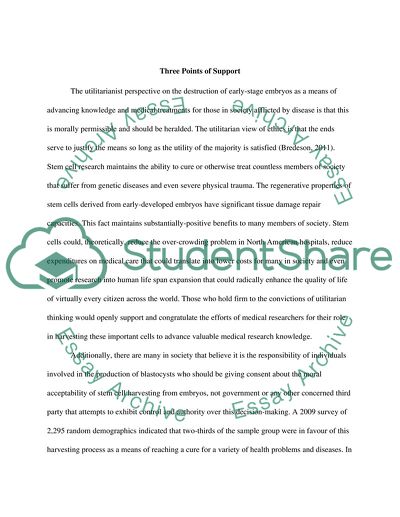Cite this document
(“Using Human Embryos in Stem Cell Essay Example | Topics and Well Written Essays - 1250 words”, n.d.)
Retrieved from https://studentshare.org/philosophy/1626662-using-human-embryos-in-stem-cell-research
Retrieved from https://studentshare.org/philosophy/1626662-using-human-embryos-in-stem-cell-research
(Using Human Embryos in Stem Cell Essay Example | Topics and Well Written Essays - 1250 Words)
https://studentshare.org/philosophy/1626662-using-human-embryos-in-stem-cell-research.
https://studentshare.org/philosophy/1626662-using-human-embryos-in-stem-cell-research.
“Using Human Embryos in Stem Cell Essay Example | Topics and Well Written Essays - 1250 Words”, n.d. https://studentshare.org/philosophy/1626662-using-human-embryos-in-stem-cell-research.


